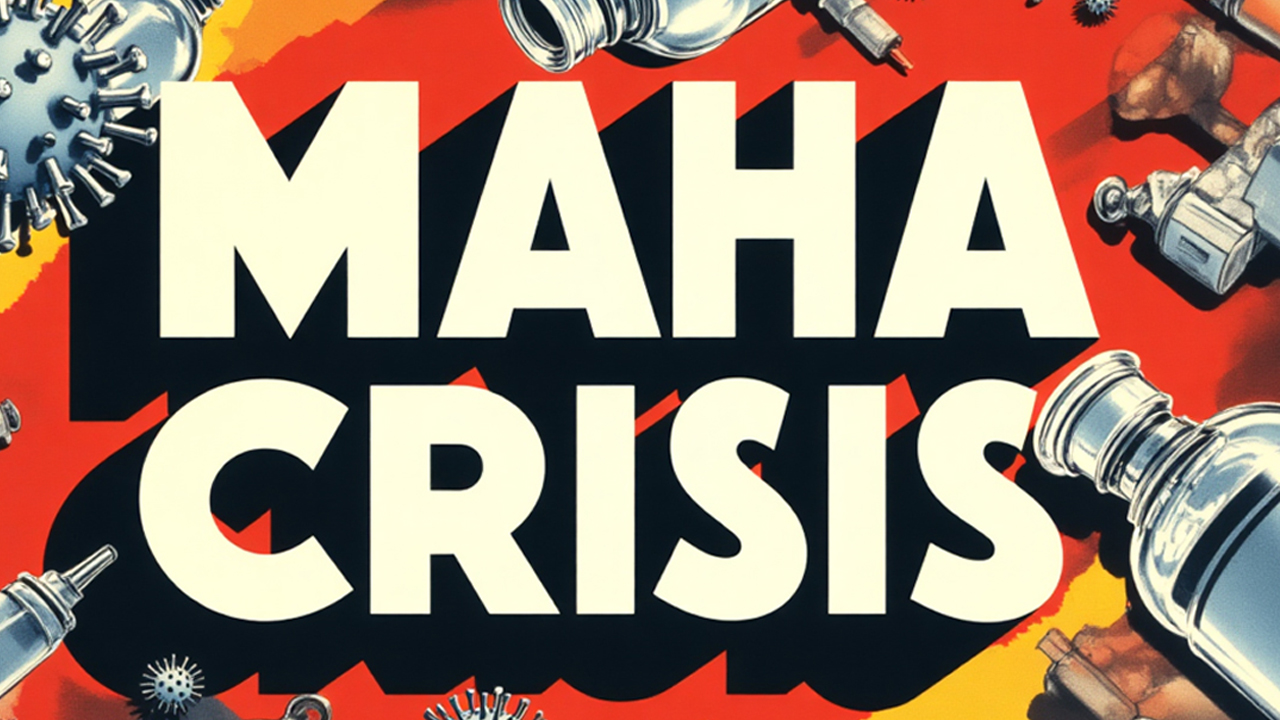 Parler
Parler Gab
Gab
- Internal sources allege RFK Jr. is being "managed" and roadblocked within HHS, preventing action on key MAHA priorities like COVID-19 vaccines.
- Critics claim lobbyists for pharmaceutical and agrochemical industries have been installed in key agencies to neuter Kennedy's influence.
- The final MAHA Commission report was significantly watered down, removing language on pesticide risks and corporate influence.
- A parallel controversy involves a Trump administration deal to increase beef imports from Argentina, angering U.S. ranchers who are struggling.
- The situation highlights a deepening conflict between the health freedom movement, the America First movement and establishment political and corporate interests.
Whispers of a "managed" secretary
The most damning allegations come from within the department itself. Gray Delany, the former Director of MAHA Implementation at HHS, stated publicly that Kennedy is being "sequestered" and "managed" by his own staff, including his principal deputy chief of staff. Delany claimed that a "chokehold" on the secretary prevents him from addressing the movement's top priority: the emergency use authorization (EUA) for COVID-19 vaccines. He alleged that staffers are instructed to avoid the vaccine issue and focus instead on what he termed "easy wins," such as food dyes. This portrayal of an isolated secretary, unable to communicate freely and humiliated by his lack of autonomy, paints a picture of a leader stripped of his executive power, echoing complaints from Kennedy's own presidential campaign about internal management.A carrot and a stick: The lobbyist strategy
These internal claims are bolstered by external critics who allege a deliberate strategy to pacify the MAHA base with a symbolic victory while ensuring its agenda cannot be implemented. Activist Tiffany Cianci alleged that Kennedy’s appointment to HHS was a "carrot" for the donor base, while key agencies needed to execute the MAHA vision were handed to lobbyists. She specifically claimed that agrochemical lobbyists were put in charge of the EPA and industrial food company lobbyists were installed at the USDA. This structure, critics argue, was designed to "cut him off at the knees," ensuring that the transformative changes sought by the movement on issues like clean food access and pesticide regulation would be blocked at the agency level.A watered-down manifesto
The tangible evidence of this dilution of the MAHA agenda is found in the commission's own final report, released in September 2025. A comparison with a prior draft reveals significant concessions to corporate interests. Language explicitly naming and expressing concern about specific pesticides like glyphosate and atrazine was entirely erased from the final document. Criticisms of corporate influence over research and regulators were also removed. In their place, the report adopted phrasing championed by CropLife America, the pesticide industry's lobbying arm, praising the Environmental Protection Agency's "robust" and "respected" pesticide review process. Health advocates labeled the final report a "betrayal," noting that while it contained some positive measures, like closing a loophole for food additives, it fell dramatically short of the aggressive action needed to address America's chronic disease crisis.Consolidating power, alienating allies
Parallel controversies in agricultural policy have further inflamed tensions. The Trump administration's move to quadruple the amount of low-tariff beef imported from Argentina has been met with fury from U.S. cattle ranchers, many of whom are struggling due to drought, feed prices and other challenges, and most of whom are a key part of the Republican base. Critics call the deal a betrayal that undermines American producers. This decision, coupled with the perception of a pro-industry tilt at the USDA, reinforces the narrative that the administration is prioritizing corporate consolidation over the decentralized, local food systems advocated by the MAHA movement. The situation highlights a fundamental conflict: the movement's goal of disrupting the status quo of food and health is clashing with powerful, established interests with deep roots in Washington.A movement at a crossroads
The current moment presents a profound challenge for the MAHA movement. Its figurehead leads a critical department but is alleged to be a prisoner within it. Its policy roadmap has been softened, and its allies in agriculture feel sidelined. The movement, built on skepticism of federal health agencies and a demand for scientific transparency, now finds itself battling the very political machinery it helped to elect. The coming months will test whether the decentralized, grassroots network can exert enough pressure to "break Secretary Kennedy free from this chokehold" or if the promise of a health policy revolution will be subsumed by the entrenched power of Washington's lobbying class. The fight for MAHA has moved from the campaign trail to the corridors of power, and the initial reports from the front lines suggest a struggle for its very soul. Sources for this article include: X.com X.com TheNewLede.com CNN.comGovernments continue to obscure COVID-19 vaccine data amid rising concerns over excess deaths
By Patrick Lewis // Share
Ultra-processed foods linked to surge in early-onset colorectal CANCER, study warns
By Patrick Lewis // Share
Social media use linked to lower reading and memory scores in children, new study finds
By Cassie B. // Share
SNAP “reset”: USDA requires recipients to reapply for benefits
By Ava Grace // Share
A veil of secrecy: U.K. health agency withholds data amid excess death concerns
By Willow Tohi // Share
The silent rhythm of blood pressure: How daily habits shape your heart health
By Willow Tohi // Share
Governments continue to obscure COVID-19 vaccine data amid rising concerns over excess deaths
By patricklewis // Share
Tech giant Microsoft backs EXTINCTION with its support of carbon capture programs
By ramontomeydw // Share
Germany to resume arms exports to Israel despite repeated ceasefire violations
By isabelle // Share








